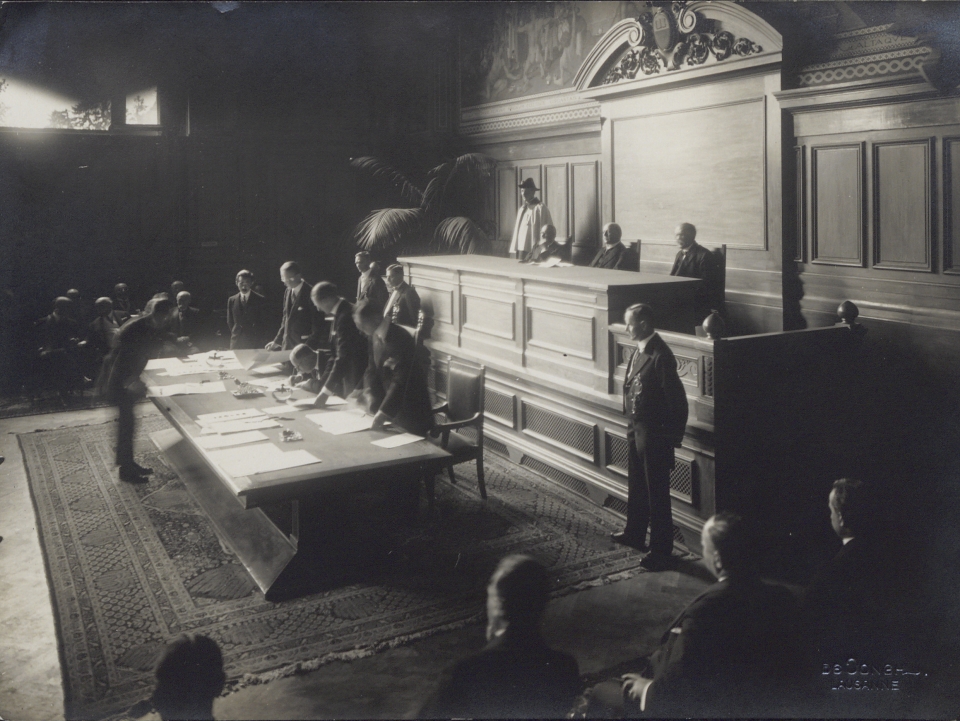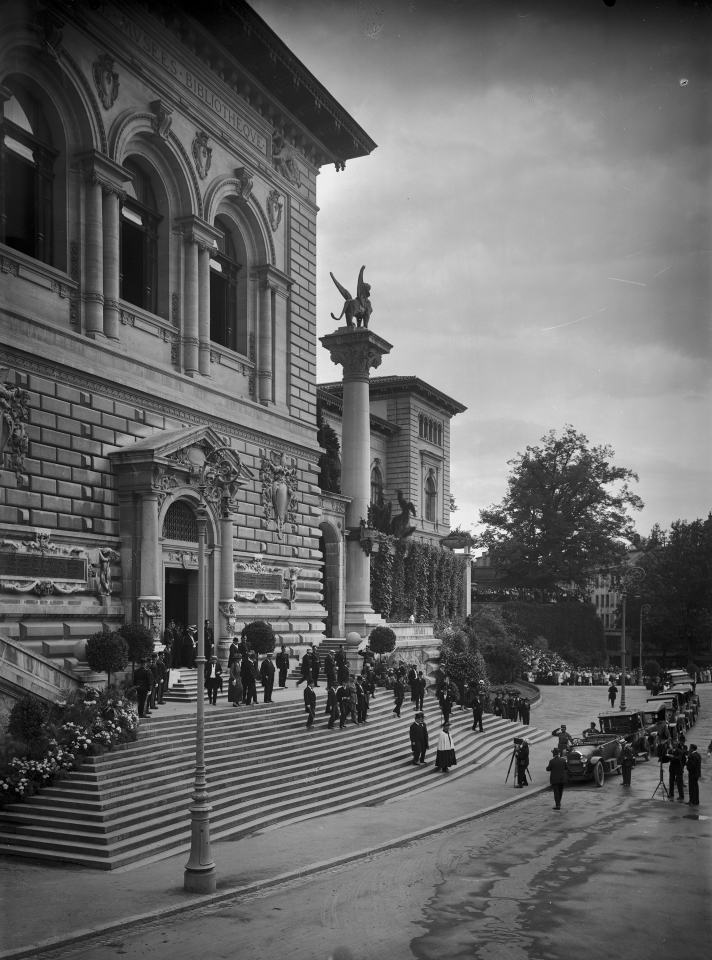The Treaty of Lausanne
The last of the great peace conferences that reshaped the world in the wake of the First World War, the Lausanne Conference, saw hundreds of diplomats, journalists and activists arrive on the shores of Lake Geneva for months of fierce negotiations on the future of the Middle East. Indeed, the situation at the start of the discussions was particularly volatile, and the signing of the Treaty on 24 July 1923 did not bring the desired peace.
Rejection of the Treaty of Sèvres
At the end of the First World War, it was through the Treaty of Sèvres that the victors originally intended to administer the remains of the Ottoman Empire. France and Great Britain cut up the pieces to their liking and gave the Armenian, Kurdish, Turkish and Greek peoples a glimpse of the idea of national states on the rubble of the Empire. Confronted with this ransacking of the defeated, Turkish nationalist groups, led by Mustafa Kemal Atatürk, refused the treaty of Sèvres and resumed the path of war, against both the Sultan and Greece. By this time, it was already clear that peace would be «a long-term undertaking» (dodis.ch/44692).
Birth of the Turkish state
When the Greek army was defeated in 1922, the Treaty signatories were forced to resume negotiations. This time, Great Britain, France and Italy, along with Japan, signed a treaty with the envoy from Ankara which also included the Kingdom of Romania, the Kingdom of Greece, the Kingdom of the Serbs, Croats and Slovenes and the Kingdom Bulgaria. Atatürk’s new Turkey gained de facto international recognition.
The choice of Lausanne: between neutrality…
Initially, the parties planned to meet in Smyrna, but Turkey was unable to convince the Western powers. The idea of a Swiss city – Lausanne or Lugano – gradually emerged among the major powers (dodis.ch/65867). Switzerland’s neutrality was an important argument, as was its touristic facilities. On 27 October 1922, just two weeks before the start of the conference, the Federal Council was approached by the French Embassy in Bern and immediately offered its support. (dodis.ch/66193). Preparations for the Conference were therefore hastily undertaken (dodis.ch/65868).
…and Swiss financial interests
Official Switzerland was not pursuing a geopolitical agenda in hosting the conference. However, the choice of location was very much in line with the interests of private actors: the Oriental Railway Bank of Zurich, which had invested in and financed the development of several railway companies in Anatolia and Asia Minor, was concerned that its interests would not be represented and defended if the Treaty of Sèvres was implemented (dodis.ch/C2529).
Consequences for Switzerland
Despite its little interest in the content of the conference, the Federal Council decided to delegate the President of the Confederation to give the opening speech (dodis.ch/44876). During the nine months of the international negotiations taking place in Lausanne, Swiss diplomacy kept a very low profile. While the question of the capitulations (dodis.ch/44884 and dodis.ch/65537) as well as the possibility of forging economic relations with the new regime in Ankara were of interest to Switzerland (dodis.ch/65861 and dodis.ch/44936), its commitment remained very modest.
The Conradi Affair
Ultimately, it was an incident on the sidelines of the Conference that would dominate the headlines in Switzerland and abroad: the Conradi Affair. On 10 May 1923, Maurice Conradi, the son of an emigrant family from Graubünden who had served in Russia in the White Army, murdered Soviet diplomat Vatslav Vorovski in the Hôtel Cécil in Lausanne (dodis.ch/T1481 and the e-dossier). Conradi’s trial and acquittal would have a much greater impact on Switzerland than the conference itself and it definitively worsened the already poor relations with the USSR.
Signing at the Palais de Rumine
On 24 July 1923, one month after the event, the Treaty was finally signed in Lausanne, at the Palais de Rumine. Indirectly, this Treaty led Switzerland to recognise the modern state of Turkey, as well as Egypt (dodis.ch/44959), while other aspirations for independence of minorities in the post-Ottoman Empire were ignored by the conference. Later, as the Kemalists would seize complete power in Turkey, the fallen Sultan of the Ottoman Empire would seek refuge in Switzerland (dodis.ch/44967).


